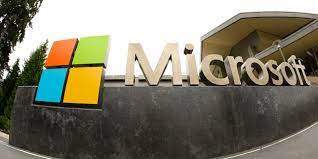Cybersecurity lessons from Russia's war in Ukraine, according to Microsoft's president and vice-chair
Since invading Ukraine, Russia has upped their cyberattacks on the United States and its allies, according to a report from Microsoft, and there are several lessons to help protect against these attacks in the future, Microsoft President and vice-Chair Brad Smith told Fox News Digital.
A drastic cyberattack against the United States is not a far-reaching idea. In fact, according to the report "Defending Ukraine: Early Lessons from the Cyber War," Microsoft has tracked Russian cyber hacking in 42 countries, with the United States being the top target, followed by Poland.
"I would say the number one goal of the Russians appears to be to get access to information so they know what governments are planning to do, it’s sort of classic espionage," Smith told Fox News Digital at the Aspen Security Forum.
The war in Ukraine, while brutal on the ground, shows that Russia is a major cyber threat as well, Smith said, noting that the country has used their cyber capabilities in three ways.
"First, with destructive cyberattacks," he said. "If they are trying to take over a nuclear power plant, they also try to take over the network, say the day before they have the troops outside.
The second prominent way Russia has been using its cyber capabilities is "espionage outside of Ukraine," Smith said, referencing more than 120 efforts in just the first few months of the war to infiltrate Microsoft customers, primarily governments.
"The third thing is what we call cyber influence operations," he added. "This is really an effort to put out propaganda to support the Russian war aims."
Smith said Microsoft has tracked an 82% increase of Russian propaganda in the United States, and a 216% increase in Ukraine.
One lesson, according to the report, is that countries should distribute digital operations and data sets across geographies.
"It’s sort of a classic lesson from military history," Smith said. "When German bombers were dropping bombs on London, the British moved their communications infrastructure underground. Today, a data center can be taken out by a cruise missile, and that, in fact, is part of what the Ukrainians experienced."
Smith also highlighted the importance of public-private partnerships when dealing with cyberspace, in contrast to traditional warfare which took place on land, sea and air.
"What is different about cyberspace is it actually oftentimes is privately owned and operated," he said. "It may be a data center, it may be a cable that belongs to a company like Microsoft or someone else. Ultimately, it includes everybody’s laptops. It includes the phone in someone’s hand."
"And so, the only way to really defend against attacks in cyberspace is … to bring everybody together. We need to bring together governments and tech companies and other businesses and nonprofits and NGOs. Only then can we do collectively what it takes to really ensure security in cyberspace," he continued.












